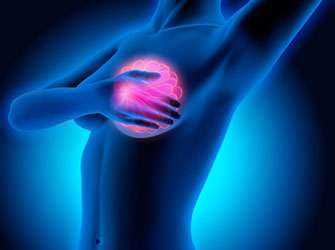Breast cancer cells form metastases – the responsible gene is identified
A particular human gene variant makes breast cancer cells more aggressive. Not only are these more resistant to chemotherapy but also leave the primary tumour and establish themselves in other parts of the body in the form of metastases. An international group of researchers led by Lukas Kenner of MedUni Vienna has now identified a gene, AF1q, as being substantially responsible for this and recognized it as a possible starting point for more accurate diagnosis and potential targeted therapeutic approaches.
The human AF1q gene was originally discovered in a chromosomal abnormality and recognised as an important factor in the development of leukaemia. Elevated AF1q levels were also found in particularly aggressive forms of acute myeloid leukaemia (AML).
The exact function of AF1q in the body is not yet fully understood but the study shows that AF1q is an important key protein in the TCF7/Wnt signaling pathway and controls the behaviour of cancer cells. Increased AF1q expression promotes the development and growth of tumour cells and prevents from natural cellular death. Patients suffering from breast cancer who have pronounced AF1q expression have a much poorer prognosis than those who do not. Furthermore, "AF1q-positive" cancer cells are more resistant to forms of chemotherapy.
Tumour cells migrate and form metastases
It was further demonstrated in model experiments that increased expression of AF1q in breast cancer cells encourages metastasis in the liver and also in the lung. When the research group compared samples of primary tumour with samples of metastases, they found that AF1q-positive cancer cells had left the primary tumour and established themselves in other areas of the body as metastases. "There is a lot of evidence to suggest that cancer cells with hyperactive AF1q expression act like founding cells for metastases," explains Lukas Kenner, "they are able to migrate into other parts of the body, establish themselves there and spread."
Since the increased presence of AF1q indicates a poorer prognosis, this knowledge can be used to improve diagnosis in the future. However, AF1q can also be used as a starting point for targeted treatment. For example, it might be possible to reduce the formation of metastases in the future or even prevent it altogether.
More information: "AF1q is a novel TCF7 co-factor which activates CD44 and promotes breast cancer metastasis." www.impactjournals.com/oncotar … article&op=view&path%5B%5D=4136
Provided by Medical University of Vienna























